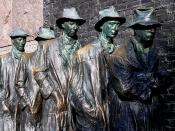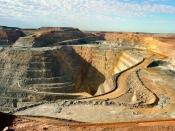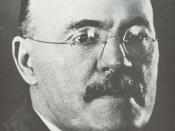Notes on the effect the Depression had in Australia
During the Great Depression, Australia's economy collapsed, unemployment figures soared, sugar/wheat and wool prices fell and society was forced to experience the physical and tormenting effects of it first hand. The Depression caused political and social upheaval in all the western countries it affected, but Australia was hit the worst.
The structure of Australia's entire economy was based on overseas dependence of imports, exports and loans. The country had relied too much on its unstable primary industry and hadn't developed its own sources.
Society was damaged, as more people lost their jobs, couldn't find employment, or those who had jobs had to work less money and longer hours. Men were considered the "bread winners" of the family, and a lot of stress was on them to provide food for their families. Many ran away from the responsibility, but man joined the rattler (train) to find temporary work in the country, like shearing, to send money they made back to their wives and children.
Women experienced hard times as their husbands either ran away or became working very long hours. Women were employed as they were paid less (54% that of men), yet even at those times they were being pushed out of the workforce. Many people living in the country didn't find the Depression as threatening because they could support themselves off of the farm, for example, milk and cheese from the cows, while plants provided fruit and vegetables from fields, and also animals could be eaten.
Many city people lost their homes and were forced to build temporary homes out of rubbish materials like cardboard and wood. These 'shanty towns' were usually located near rivers or in public parks.
The government provided a financial supplement called the 'susso' for...


